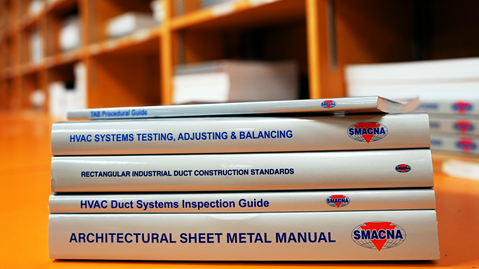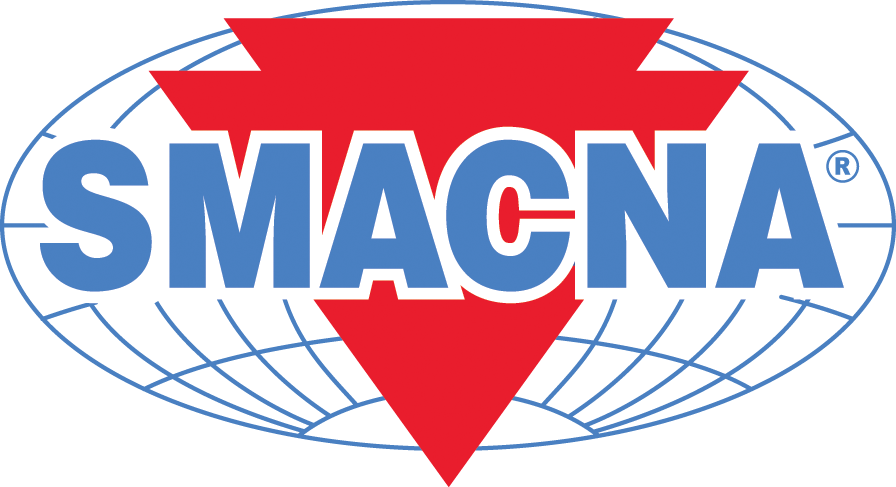HR & EMPLOYEE MANAGEMENT
SMACNA offers resources to help employers understand some of the federal laws and regulations impacting their workforce.
This includes information on the Fair Labor Standards Act and immigration as well as guidance on terminating employees and developing workplace policies.
FAQs re: "Qualified Overtime" and the One, Big Beautiful Bill
COVID-19 Vaccine Resources for Contractors
Collectively and quickly responding to this pandemic is the most important immediate issue we face as an industry. The COVID-19 vaccine is a safe and easily implemented tool now at our disposal to battle the pandemic and return to a normal life at home and on the job. The following resources will help contractors to educate employees and encourage a healthy and vaccinated workforce.
What Protection of Sexual Orientation Under Federal Law Means for Contractors
In 2020, the Supreme Court determined that sexual orientation and gender identity are protected classes covered under Title VII of the Civil Rights Act. This webinar explores examples of discriminatory behaviors and scenarios, discusses liability standards, and suggestions for revising harassment and discrimination policies.
Guide to EEO Compliance
SMACNA contractors who work on federal contracts have certain equal employment opportunities (EEO) obligations imposed upon them that may not apply to contractors who do not work on federal contracts.
Collective Bargaining Considerations for Monitoring Technology
An overview of the law under the National Labor Relations Act concerning use of technology to monitor employees and employer property.
Understanding The DOL Rules On Paid Sick Leave for Federal Contractors
The U.S. Department of Labor’s Wage and Hour Division implemented Executive Order 13706 in 2016, which requires contractors working on federal contracts to provide paid sick leave to certain employees.
Compensation for Time Spent Changing Into or Out of Some Protective Gear
Contractors working under contracts that exclude time for changing of clothes from paid time should review their practices to ensure that the vast majority of the time excluded is spent putting on or taking off “clothes” as defined by the Sandifer decision.
Employee or Independent Contractor Classification Under the Fair Labor Standards Act
SMACNA comments in support of the DOL’s Notice of Proposed Rulemaking — Employee or Independent Contractor Classification under the Fair Labor Standards Act published Oct. 13, 2022. SMACNA believes that the construction industry needs stronger protections against the deliberate misclassification of workers as independent contractors — also called “worker status fraud.” SMACNA believes the DOL should develop rules specific to the construction industry to prevent unscrupulous contractors from deliberately misclassifying workers to gain an unfair advantage for law-abiding contractors that pay workers middle-class wages and benefits.
Fair Labor Standards Act and Travel Time
The Fair Labor Standards Act (FLSA) is a federal law that prescribes standards for the basic minimum wage and overtime pay. Chapters and members need to be familiar with this law to ensure collectively bargained provisions and employment practices are in conformity with its requirements.
Is Training Time Compensable Under The Fair Labor Standards Act?
This paper explores scenarios that illustrate how the regulation has been applied by the Department of Labor. Chapters and members should be aware that it is possible that training time not compensable under the FLSA may still be regarded as compensable hours of work by the local union.
FMLA and the SMACNA Contractor
This paper provides an overview of FMLA’s provisions as well as information on the two most common questions that arise in our industry over FMLA rights.
New State COVID-19 Liability Laws
This presentation outlines the proposed “Safe to Work” Act, which imposes strict nationwide limitations on COVID-19 related tort liability. The limitations are retroactive from December 1, 2019 and extend to October 1, 2024.
Questions for Consideration When Terminating Employees for Cause
With adoption of the Code of Excellence by SMART, many contractors asked whether they should terminate an employee for cause and whether doing so increases the contractor’s exposure to employment based lawsuits by terminated employees. SMACNA explains why terminating for cause can benefit employers and outlines best practices for termination.
Continued Workforce Related COVID-19 Guidance for Contractors
This webinar addresses a Presidential Memorandum titled, “Memorandum on Deferring Payroll Tax Obligations in Light of the Ongoing COVID-19 Disaster” issued on August 8, 2020.
A Contractor's Guide to New FFCRA
Provides an overview of the paid leave requirements of the Families First Coronavirus Response Act (FFCRA) for contractors.
Rules Governing Use of Cell Phones in the Workplace
This paper discusses issues employers may face surrounding the implementation of work rules regarding the use of cell phones in the workplace. Under the National Labor Relations Act, rules governing the use of cell phones and other electronic communication devices in the workplace, are “mandatory topics of bargaining.”
Sample Unlawful Harassment and Discrimination Policy
Employers may use this sample as a guide when drafting, implementing, and administering their harassment and discrimination policy in the workplace.

Technical Standards
Shop the SMACNA bookstore for all technical standards, including the most recent editions and recently revised manuals.
Shop Now
